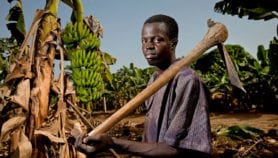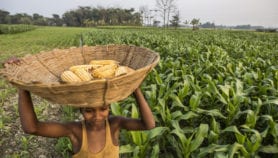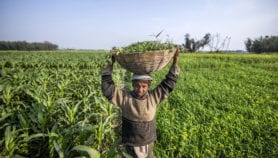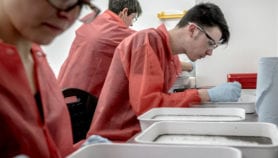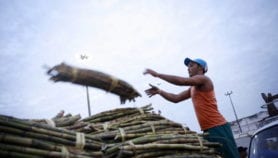By: Katie Mantell
Send to a friend
The details you provide on this page will not be used to send unsolicited email, and will not be sold to a 3rd party. See privacy policy.
 The International Potato Centre genebank contains thousands of samples of potato, sweetpotato and andean and tuber crops |
The money — which will be sought from private companies, among others — would help ease the financial strain on the world’s 1,300 agricultural gene banks, which are considered vital for food security.
The Food and Agriculture Organisation (FAO) and the Italy-based International Plant Genetic Resources Institute (IPGRI) announced the proposal yesterday (13 June) at the World Food Summit follow-up meeting in Rome.
“It is proving more and more difficult to secure the level of funding needed each year to ensure long-term conservation” of plant genetic resources, said Geoffrey Hawtin IPGRI Director General.
Gene banks are generally maintained by annual funding, but this has declined dramatically over the last decade, he said. And many gene banks are located in developing countries, which struggle to cover the costs of their upkeep.
“We have the technical knowledge at our disposal to make an enormous breakthrough in the world against hunger,” Hawtin said. ” We have the plant diversity collections to serve us as a virtually inexhaustible source of genes for crop improvement. What we do not have are the funds to properly exploit the collections.”
In an attempt to raise money for the new fund, the Consultative Group on International Agricultural Research (CGIAR) — which supports a global network of agricultural research centres, including the IPGRI — and the FAO are now in consultations with a range of multilateral and bilateral agencies, corporations and governments in both the North and the South.
An initial endowment of US$260 million — which represented new funding, rather than the reallocation of existing resources — would be enough to maintain banks of major crops, but not all of the world’s gene banks, Hawtin said.
Gene banks are a “critical weapon in the fight against poverty and starvation” he said, because they preserve the genetic diversity that is needed for crop improvement, whether through conventional plant breeding or genetic engineering.
“With support from partners and friends, we can assure that these collections remain available for all who need them today and tomorrow throughout the world.”
Hawtin hopes to formally announce the launch of the fund later this year.
© SciDev.Net 2002
To read Hawtin’s speech at the Summit in Rome, click here
Photo credit: CGIAR; Centro Internacional de la Papa (CIP)






